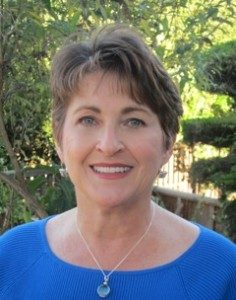ADHD and Denial: Like Father, Like Son (and Daughter)

Month after month, Rodney and Lorraine attended the local ADHD discussion group. They desperately sought support in parenting their two newly diagnosed teen children. Their boy was failing ninth grade. Their college-freshman girl was on academic probation. It was hard to see what would stop their downward spiral. The children were bright enough, but balked vehemently at any suggestion that ADHD might explain their challenges.
For his part, dad Rodney freely proclaimed to the group that he was the “genetic donor” to his children's ADHD. Without hesitation, he admitted that his temper outbursts were over-the-top. His rigid organizational system had never accommodated three other people living in a small house. Oddly enough, Rodney seemed to revel in recounting all of this for the group. “Whaddya gonna do? I yam what I yam,” he'd conclude, shrugging his shoulders and mugging for laughs from the group.
Trouble was, the group wasn't laughing. Lorraine wasn't, either. She loves Rodney and knows that her good-hearted husband of 24 years loves their children. But how could she create some semblance of order, discipline, and calm in the home when Rodney constantly sabotaged her best efforts? Moreover, how could she convince her children that ADHD treatment might help them if their own father remained “in denial”? It was three against one, which meant the entire family was losing.
Article continues below...
Minimize Meltdowns!
Download a free tipsheet "Top 10 Ways to Stop Meltdowns in Their Tracks" to stop yelling and tantrums from everyone!
Denial's Complex Foundations
Lorraine looked resigned. As other parents have said to me, “I've given up on my spouse doing anything about his (or her) ADHD; I must focus on my child now.” (It's worth noting that some of these parents have ADHD as well. The difference is they were “owning” it.) Perhaps if these couples had learned about ADHD years ago, the counterproductive patterns wouldn't be so entrenched. Lorraine was learning all she could and embracing new strategies. But Rodney remained stuck in “I yam what I yam.”
Rodney is a smart man; he runs his own construction business. He had all the “evidence” that ADHD created problems at home and at work. It simply wasn't making a connection in the part of his brain that said, “Now do something about it.”
Perhaps, by age 50, he had developed learned helplessness. This is common among late-diagnosis adults who have unsuccessfully tried surmounting their challenges for decades. Giving them ultimatums only alienates. Offering optimism that true change is possible might help you reach them – as long you're offering fresh, realistic ideas.
Another possibility? ADHD symptoms themselves were limiting Rodney's objectivity. Maybe he simply couldn't see the true impact of his behaviors. We typically think of “denial” as being psychological–for example, not wanting to be stigmatized with a “kid's disorder.”
Yet, “denial” can be physiological as well. That is, ADHD symptoms such as distractibility and inattention can impair one's ability to “connect the dots.” These folks truly might not see how ADHD-related traits negatively affect themselves and others. Furthermore, low motivation and initiation can mean they never “get off the dime” to do something about it.
To Get Through Denial, Get Clear–and Find Support
To get clear, first start educating yourself about Adult ADHD. (Remember: It can manifest very differently in adults, compared to children). The end goal is not to “accept” problematic behaviors. Rather, it is to learn why these behaviors happen. That way, you can nurture empathy for your partner and work as a team to develop realistic strategies. What about reading books or talking with an ADHD-savvy therapist? Those are also great ideas. You might find, however, that the most remarkable breakthroughs come from participating in a supportive group (online, on the phone or face-to-face).* In fact, that's what happened with Rodney and Lorraine's family.
Bit by bit, group members' candid revelations from others chipped away at Rodney's obliviousness. He started seeing that his ADHD was exacerbating his children's mounting problems. The group members didn't lecture, however, or tell him what to do. Instead, these adults told stories of how it felt to grow up with a parent who didn't understand their own or their child's ADHD. They also shared before-and-after stories of positive changes they'd made once they started “owning” their ADHD.
Many of them were parents, and their personal success stories had more impact on Rodney than any book or lecture. Because they were so honest, he could drop his defenses and start facing his challenges with less shame and more of a problem-solving attitude.
Slowly, the family dynamics started shifting. Rodney stopped haranguing the kids constantly to “buckle down." The kids took notice of the personal changes he was making. Lorraine could start acting more like mom and wife instead of peacemaker. All four started talking about the Elephant in the Room: ADHD and what they could do as a family to support and learn from each other.

